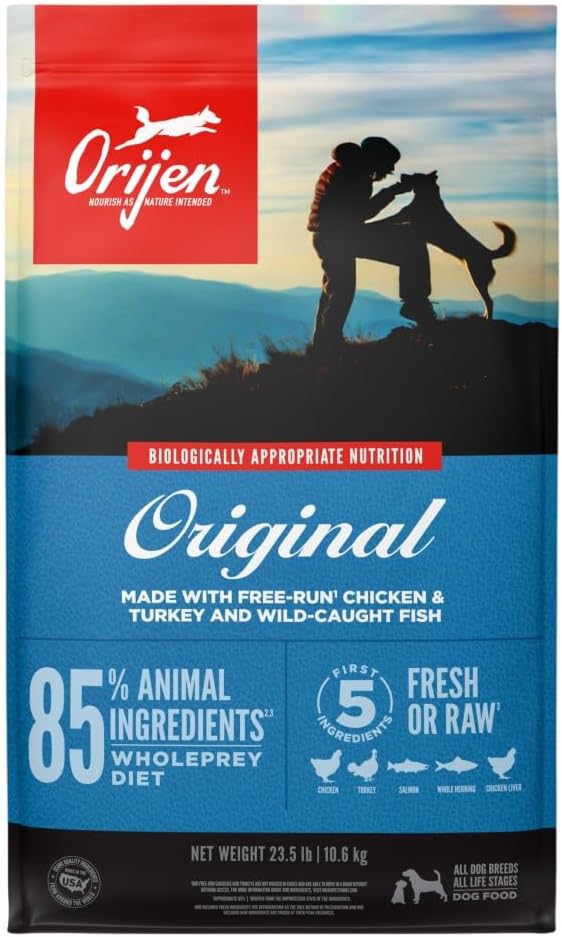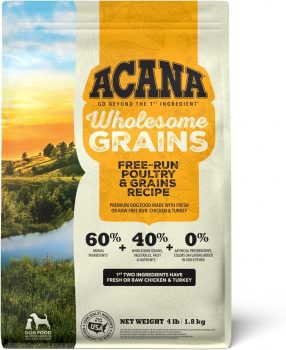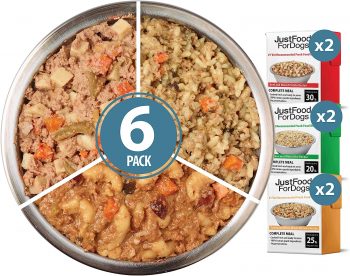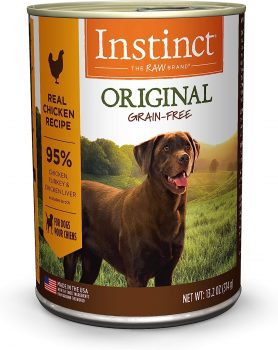Yorkshire Terriers, affectionately known as Yorkies, are among the most beloved toy breeds worldwide. Characterized by their petite stature, silky fur, and lively disposition, they are more than just lapdogs – they are true companions with dynamic personalities. Despite their small size, Yorkies have specific dietary requirements to keep them healthy and vibrant. This comprehensive guide delves into the nuances of feeding a Yorkie, considering factors like caloric content, portion control, and estimated monthly expenses.
1. Understanding Caloric Needs
Given their small size, Yorkies don’t need a vast amount of calories. However, the amount they do need should be packed with nutrients.
a. Puppies: Growing at a rapid pace, Yorkie puppies typically require around 50 to 60 calories per pound of body weight daily.
b. Active Adults: An adult Yorkie who’s particularly active might need between 35 to 45 calories per pound of body weight each day.
c. Less Active or Senior Dogs: Older or less active Yorkies have diminished energy requirements, typically ranging from 25 to 35 calories per pound of body weight daily.
2. Decoding Dog Food Labels
It’s of paramount importance to thoroughly understand dog food labels to provide the right nutrition for your Yorkie. While many brands provide feeding guidelines, they should be taken as starting points. Tailoring portions to suit your Yorkie’s individual needs is key.
3. Factors Influencing Dietary Quantities
a. Activity Levels: A Yorkie who enjoys extended play sessions or walks will naturally burn more calories than a more sedentary counterpart.
b. Health Status: Certain health conditions or dietary sensitivities might influence a Yorkie’s nutritional needs and appetite.
c. Age and Life Stages: Whether they’re a growing puppy, an active adult, or a serene senior, Yorkies have distinct nutritional needs at different life stages.
4. Treats and Extra Bits
Yorkies often develop a taste for treats, but moderation is crucial. Treats should constitute no more than 10% of their daily caloric intake. Opting for nutritious and low-calorie treats is always preferable.
5. Monthly Cost Estimation
Assuming a premium commercial dog food priced at approximately $2.50 per pound (given the specialized small breed formulations) and containing about 400 calories per cup:
For an adult Yorkie weighing 7 pounds and requiring roughly 245 calories daily:
- Daily food requirement = 245 calories ÷ 400 calories/cup = 0.6 cups daily.
- Monthly food requirement = 0.6 cups x 30 = 18 cups.
- Given that a 10-pound bag offers around 40 cups of food, a Yorkie would need roughly half a bag per month.
- Monthly cost = 0.5 bags x $25 (assuming $2.50 per pound) = approximately $12.50.
Bear in mind that this is a rough estimate. Actual costs can vary based on brand choice, regional pricing, and individual dog needs.
6. Special Considerations
Yorkies have small mouths and might struggle with larger kibble sizes. Opt for formulas specifically designed for small breeds. Additionally, being prone to dental issues, consider providing kibble that supports dental health or incorporating dental chews into their routine.
Our 5 Top Foods for Yorkies
The diets were selected by our founder Justin Palmer, a certified canine nutrition expert, specifically with Yorkies in mind:
| Food | Pros | Cons |
|---|---|---|
|
|
|
|

Check Today's Price on: |
|
|

Check Today's Price on: |
|
|

Check Today's Price on: |
|
|

Check Today's Price on: |
|
|
Conclusion
While their size might suggest simplicity in feeding, Yorkies deserve a well-balanced, nutritious diet tailored to their unique needs. Monitoring their weight, ensuring they receive nutrient-dense meals, and consulting with a veterinarian are pivotal steps in promoting a long, healthy life for your Yorkshire Terrier. Their small stature holds a heart full of love, and by providing them with the best nutrition, you ensure they remain a lively and loving companion for many years.
Frequently Asked Questions About Feeding a Yorkie

1. What type of dog food is best for Yorkies?
Yorkies benefit from high-quality, nutrient-dense dog foods formulated specifically for small breeds. These foods typically contain higher protein and fat percentages to cater to their fast metabolism. Opt for brands that list real meat as the primary ingredient and avoid fillers or artificial additives.
2. How many times a day should I feed my adult Yorkie?
It’s usually recommended to feed adult Yorkies three times a day. Due to their small size, they have a faster metabolism and smaller stomachs, making frequent, smaller meals more beneficial for sustained energy and preventing low blood sugar.
3. Can Yorkies eat fruits and vegetables?
Yes, many fruits and vegetables are safe and nutritious for Yorkies. However, it’s essential to ensure they are dog-friendly options. Apples (without seeds), blueberries, carrots, and green beans are all good choices. However, avoid toxic foods like grapes, raisins, and onions.
4. My Yorkie is becoming overweight; what should I adjust?
First, reevaluate their caloric intake against their activity levels. Reducing portion sizes, cutting back on treats, and increasing their physical activity can help manage weight. Consultation with a veterinarian can also provide guidance on a suitable weight management plan.
5. Are there any specific foods or ingredients to avoid for Yorkies?
Yes, Yorkies, like all dogs, should avoid toxic foods such as chocolate, grapes, raisins, onions, garlic, and foods sweetened with xylitol. It’s also wise to be cautious with foods high in fat, as Yorkies can be prone to pancreatitis.
6. Should I give my Yorkie wet or dry food?
Both wet and dry food have their advantages. While dry kibble can be beneficial for dental health, wet food is more hydrating and can be more palatable for picky eaters. Many Yorkie owners opt for a mix of both to provide variety and cover all nutritional bases.
7. Do Yorkies have common food allergies?
Yes, like many breeds, Yorkies can be susceptible to food allergies. Common allergens include beef, chicken, wheat, corn, and soy. If your Yorkie is showing signs of allergies, such as skin irritations or digestive issues, consult with a vet for a potential dietary adjustment.
8. How much water should a Yorkie drink daily?
A Yorkie should ideally consume about an ounce of water for each pound of body weight daily. Ensure that fresh water is always available, especially during warmer months or after play sessions.
9. Are there any supplements recommended for Yorkies?
While a well-balanced diet should cover all nutritional bases, some Yorkies might benefit from specific supplements. Omega-3 fatty acids can support skin and coat health, while glucosamine might benefit joint health. It’s always best to consult with a veterinarian before introducing any supplements.
10. My Yorkie is a fussy eater; how can I encourage better eating habits?
It’s not uncommon for Yorkies to be picky eaters. Offering a variety of high-quality foods, warming up wet food, and establishing a consistent feeding routine can encourage better eating habits. If the fussiness persists or if you’re concerned about nutritional intake, consult with a veterinarian for advice.
 Check Today's Price on:
Check Today's Price on: Toledo, United States.
Toledo, United States.
